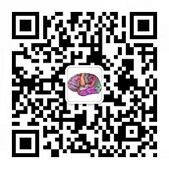TBC1D24
基因产物:TBC1域家族蛋白成员24。
蛋白功能:可作为Rab家族蛋白的GTPase激活蛋白参与神经元投射的发育以及突触囊泡运输的调节[8-10]。
相关疾病:常染色体隐性遗传耳聋(AR)[1];常染色体显性遗传耳聋(AD)[2];DOORS 综合症(AR)[3];发育性癫痫性脑病16型(部分可表现为婴儿癫痫伴游走性局灶性发作(AR)[4]、家族性婴儿肌阵挛癫痫(AR)[5]、Dravet 综合征(AR)[7]、进行性肌阵挛癫痫(AR)[7]、婴儿癫痫性痉挛综合征[11]);Rolandic癫痫伴运动诱发性肌张力障碍和书写痉挛(AR)[6]。
突变数据库:ClinVar数据库。
相关基础研究:转基因小鼠模型(PMID: 30335140 (Hum Mol Genet. 2019);PMID: 30602030 (Hum Mol Genet. 2019))
相关临床研究:PubMed数据库(PMID: 27281533 (Neurology. 2016))
用药提醒:基于目前报道的该基因变异可能导致的一些癫痫综合征及发作类型来看不建议优先考虑卡马西平、奥卡西平等这类窄谱的抗癫痫药物,部分病人有可能反而会加重(仅个人建议,只供参考),另有文献报道丙戊酸钠、苯巴比妥、氯巴占、唑尼沙胺、托吡酯对部分患者有效[12-13]。
讨论版块:点击进入TBC1D24基因突变讨论版块。
参考文献
- Rehman, A.U., et al., Mutations in TBC1D24, a gene associated with epilepsy, also cause nonsyndromic deafness DFNB86.Am J Hum Genet, 2014. 94(1): p. 144-52.
- Azaiez, H., et al., TBC1D24 mutation causes autosomal-dominant nonsyndromic hearing loss.Hum Mutat, 2014. 35(7): p. 819-23.
- Campeau, P.M., et al., The genetic basis of DOORS syndrome: an exome-sequencing study.Lancet Neurol, 2014. 13(1): p. 44-58.
- Milh, M., et al., Novel compound heterozygous mutations in TBC1D24 cause familial malignant migrating partial seizures of infancy.Hum Mutat, 2013. 34(6): p. 869-72.
- Falace, A., et al., TBC1D24, an ARF6-interacting protein, is mutated in familial infantile myoclonic epilepsy.Am J Hum Genet, 2010. 87(3): p. 365-70.
- Luthy, K., et al., TBC1D24-TLDc-related epilepsy exercise-induced dystonia: rescue by antioxidants in a disease model.Brain, 2019. 142(8): p. 2319-2335.
- Zhang, J., et al., Infantile epilepsy with multifocal myoclonus caused by TBC1D24 mutations. Seizure, 2019. 69: p. 228-234.
- Falace, A., et al., TBC1D24, an ARF6-interacting protein, is mutated in familial infantile myoclonic epilepsy. Am J Hum Genet, 2010. 87(3): p. 365-70.
- Luthy, K., et al., TBC1D24-TLDc-related epilepsy exercise-induced dystonia: rescue by antioxidants in a disease model. Brain, 2019. 142(8): p. 2319-2335.
- Aprile, D., et al., TBC1D24 regulates axonal outgrowth and membrane trafficking at the growth cone in rodent and human neurons. Cell Death Differ, 2019. 26(11): p. 2464-2478.
- McTague, A., et al., The genetic landscape of the epileptic encephalopathies of infancy and childhood. Lancet Neurol, 2016. 15(3): p. 304-16.
- Neurology. 2016 Jul 5;87(1):77-85.
- 张静,吴希如,张月华,et al.TBC1D24基因相关癫痫的临床表型特点[J].中华儿科杂志, 2018, 056(009):667-673.

 English
English  简体中文
简体中文 